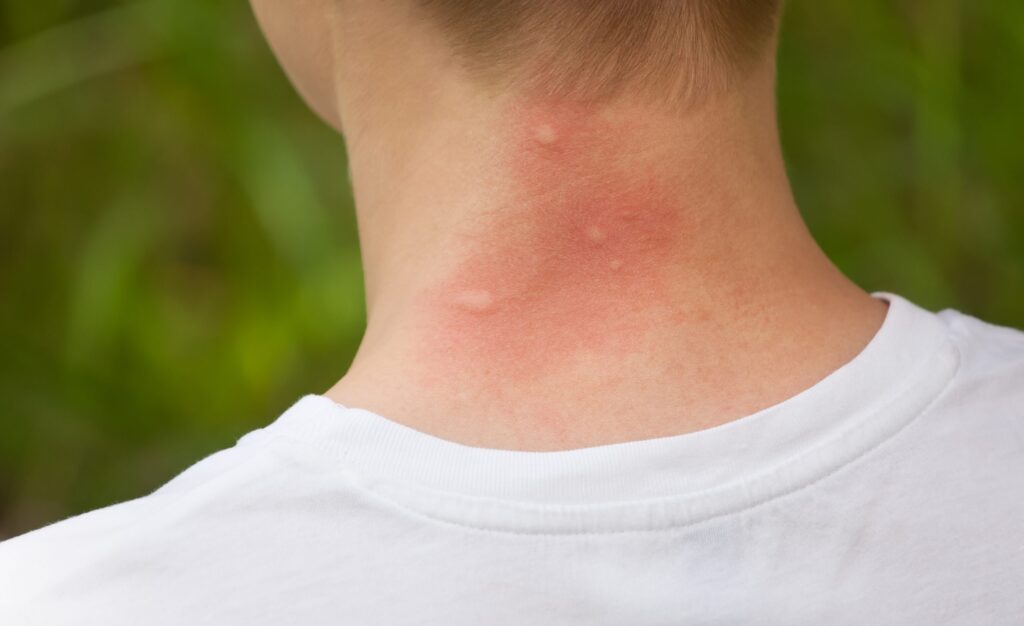Mosquitoes are the ultimate seasonal pests, appearing in spring and breeding all summer long. They transmit harmful diseases such as Zika virus, yellow fever, dengue and malaria. Appling insecticides to vegetation and areas near standing water will control and prevent the spread of mosquitoes.
Mosquito Facts
- Six legs
- Single pair of wings
- 3 to 9 mm in length
- Female mosquitoes feed on blood and flower nectar
- Mosquitoes are most active from dusk until dawn and in dark, shady areas
- Prefer to lay eggs in standing, stagnant water
Damage Lifespan
Mosquito eggs are laid on the water’s surface and can hatch within five days. The organic material and algae found in water offer mosquito larvae the valuable nutrients needed to grow.
Male mosquitoes only live six to seven days and feed off plant nectar instead of blood meals. Female mosquitoes can live anywhere from six weeks to five months and feed on both plant nectar and blood. The itchy rash from a mosquito bite is actually the insect’s saliva that was transferred during the bite. The Centers for Disease Control and Prevention offers tips for recognizing mosquito bites and treatment options.
Mosquito Control and Extermination
The best way to eliminate mosquitoes is to remove their breeding grounds, which are primarily areas where there is standing water, such as ditches, around pools, wetlands and low-lying areas. Fog treatments are the best way to treat areas where mosquitoes live, breed and are general pests. Families or business owners who have a pool, wetlands, woods or other dark or damp areas nearby should speak with a professional about regular mosquito treatments. United Pest & Turf Control offers monthly mosquito treatments for commercial and residential properties from April through October.
Controlling Mosquitos in North Alabama and Southern Tennessee
Serving North Central Alabama and South Central Tennessee
Limestone County
Ardmore
Home » Controlling Mosquitos


